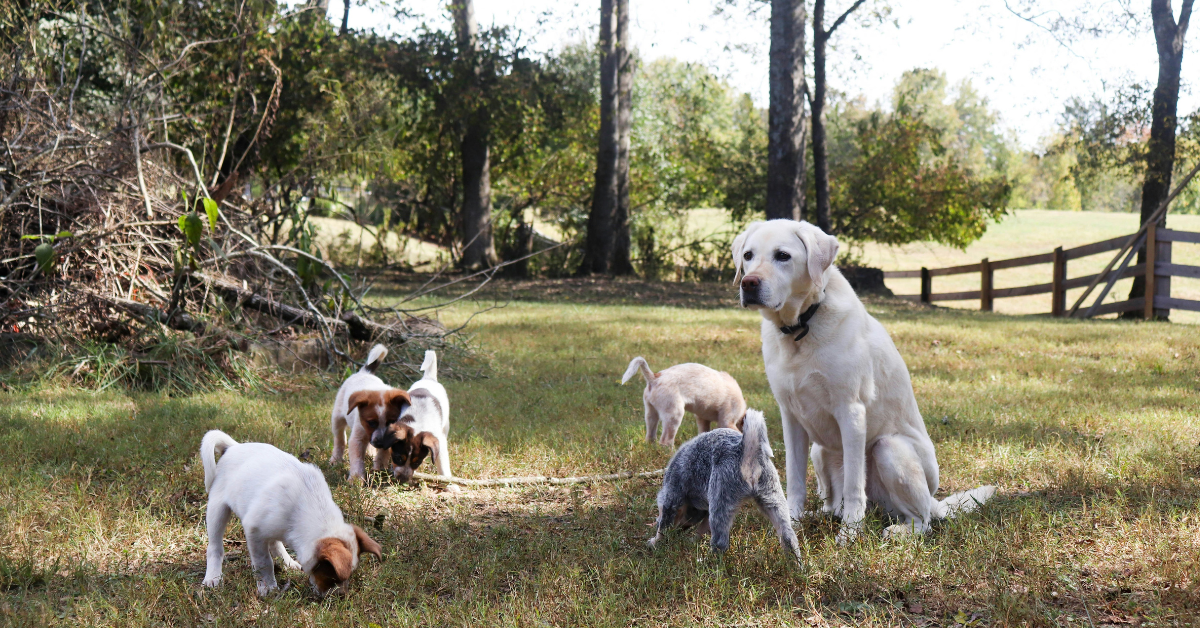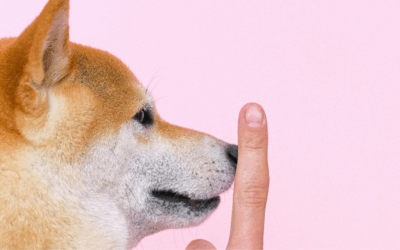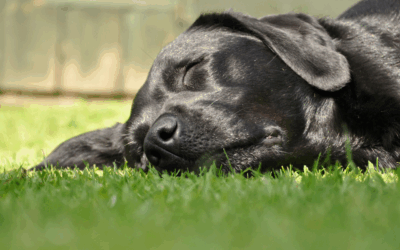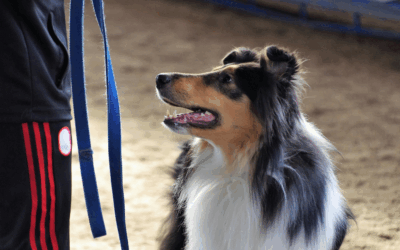When I first started working with puppies nearly 20 years ago, I quickly learned that socialization isn’t about exposure—it’s about experience. It’s not just showing a puppy the world; it’s teaching them how to move through it with calm confidence.
Puppy socialization is one of the most critical phases in your dog’s development. The experiences your puppy has with other puppies between 3 and 14 weeks of age shape how they’ll respond to new people, places, sounds, and situations for the rest of your puppies life. Yet many well-meaning pet parents in Arlington rush to socialize their puppies at crowded dog parks or busy pet stores—often before the pup is emotionally ready. That approach can backfire, leading to fear, anxiety, and reactivity down the line.
At Canine Cardio, we take a different approach. Our philosophy is rooted in structure, purpose, and calm leadership. We believe that proper socialization isn’t about overwhelming a puppy with as much as possible, as quickly as possible. It’s about introducing them to the world in a way that builds trust, resilience, and long-term emotional balance.
Lets learn how to socialize a puppy the right way with structured, calm, and purposeful training. Discover the 7-7-7 rule, 3-second rule, and more.you’ll learn what real puppy socialization looks like—including practical frameworks like the 7-7-7 rule, the 3-second rule, and the 10-minute rule. You’ll also discover why structured, trainer-led environments provide better outcomes than chaotic free-play settings. Whether you’re raising a new puppy or helping a older dog or adult dog build confidence, this guide will show you how to do it the right way.
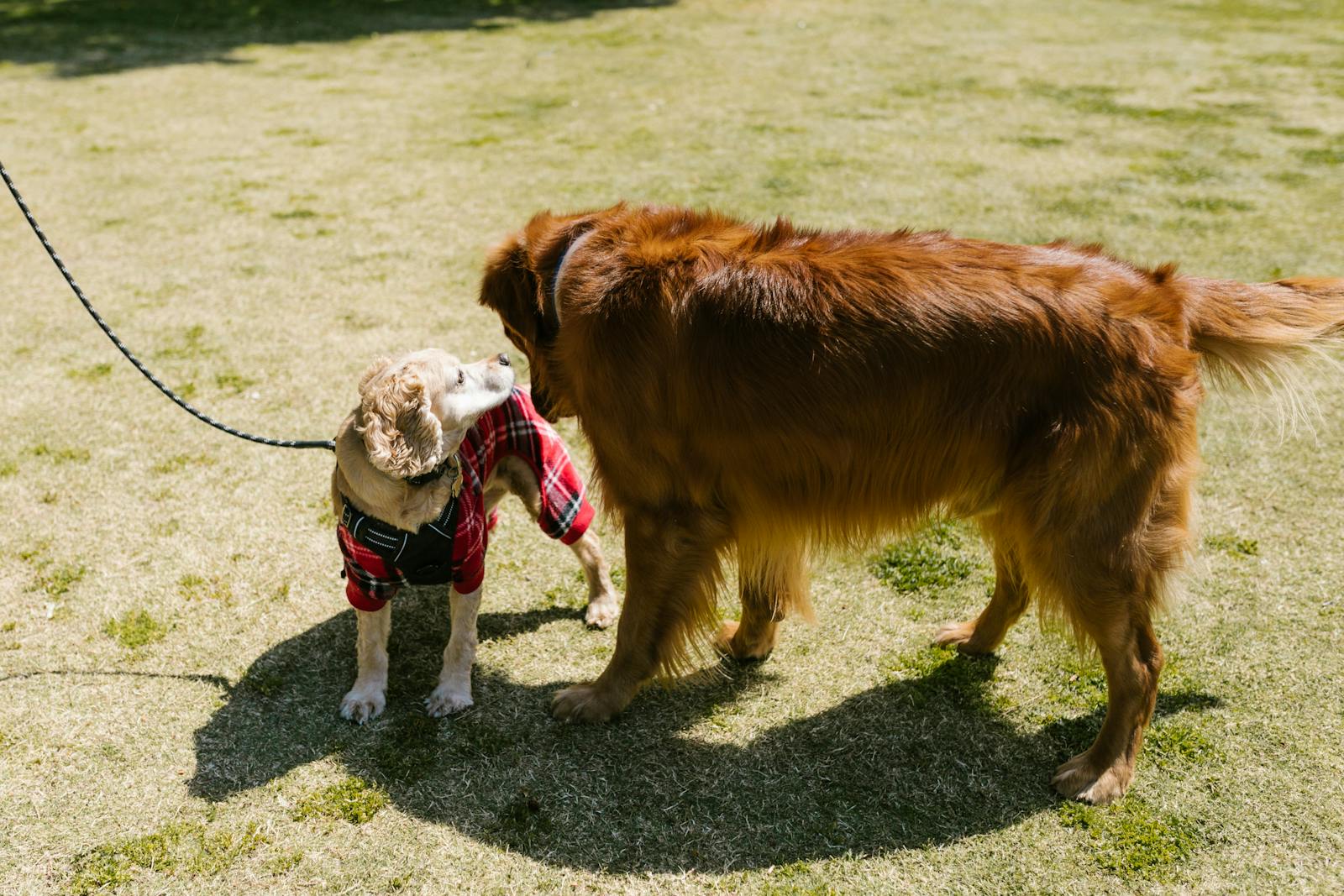
Photo by RDNE Stock project on Pexels
Understanding Puppy Socialization: Building a Calm Foundation
The socialization period begins around 3 weeks of age and closes somewhere between 12 and 14 weeks. During this window, a puppy’s brain is uniquely receptive to new stimuli. Every sight, sound, texture, smell, and interaction creates emotional patterns that influence behavior well into adulthood.
This is why early socialization is so important. Puppies who are thoughtfully exposed to a variety of environments, people, and animals during this period tend to grow into dogs who are adaptable, confident, and emotionally balanced. On the other hand, puppies who miss this window—or who experience chaotic, overwhelming, or negative interactions—are more likely to develop fear-based behaviors, reactivity, or aggression later in life.
But here’s the key: socialization is not about quantity. It’s about quality.
You don’t need to take your puppy to a different place every single day or introduce them to 50 people in a week. What matters is that each new experience is positive, controlled, and leaves your puppy feeling successful. A single calm walk through a quiet neighborhood can be more valuable than a frantic hour at a crowded dog park.
At Canine Cardio, I’ve seen countless puppies grow into calm, confident dogs simply because their early experiences were guided with intention. We focus on creating positive associations with new stimuli, allowing puppies to move at their own pace, and building emotional resilience through structure and leadership.
What Is the 7-7-7 Rule for Puppies?
The 7-7-7 rule is a helpful framework for structuring your puppy’s early socialization. The idea is simple: by 7 weeks of age, your puppy should have been exposed to at least 7 different experiences in 7 different categories.
For example:
- 7 different people: Introduce your puppy to individuals of various ages, sizes, and appearances. Include people wearing hats, sunglasses, or uniforms. Encourage calm, gentle interactions—not overwhelming excitement.
- 7 different surfaces: Let your puppy walk on grass, carpet, tile, concrete, gravel, metal grates, wood chips, and other textures. This builds body awareness and prevents fear of unfamiliar ground.
- 7 different environments: Take your puppy to controlled settings like your home, a friend’s house, a quiet park, a vet’s office, a café patio, your car, and other safe spaces.
The goal isn’t to check off a list as fast as possible. It’s to introduce your puppy to new sights, sounds, and sensations in a way that promotes calm curiosity—not stress or overstimulation.
This approach aligns perfectly with Canine Cardio’s Train for Reality™ philosophy. We don’t believe in throwing puppies into chaotic environments and hoping for the best. Instead, we create controlled, purposeful exposure that builds confidence one positive experience at a time.
What Is the Best Age to Start Puppy Classes?
The prime socialization window occurs between 3 and 14 weeks of age. This is when puppies are most open to new experiences and least likely to develop fear-based responses. After this period, the brain becomes less flexible, and it takes more effort to build positive associations with unfamiliar stimuli.
One of the most common mistakes I see is waiting until a puppy is fully vaccinated before starting socialization. While it’s important to protect your puppy from illness, waiting until 16 weeks or later can mean missing the most critical weeks of their emotional development.
Dont Wait Until They Are Fully Vaccinated!
The good news? You can socialize your puppy safely, even before they’ve completed their vaccine series. Here’s how:
- Enroll in puppy socialization classes that require proof of vaccination and health checks for all participants.
- Arrange controlled playdates with healthy, vaccinated dogs in safe environments.
- Visit structured daycare programs like those offered at Canine Cardio, where every dog is screened and supervised by trained professionals.
- Carry your puppy in public places to expose them to new sights and sounds without direct contact with unknown dogs or surfaces.
At Canine Cardio, we specialize in creating safe, supervised environments where young pups can experience the world without risk or overwhelm. Our puppy programs are designed to maximize socialization during this critical window while keeping health and safety top of mind.
What Is the 3-Second Rule for Socializing Puppies?
The 3-second rule is a simple guideline for introducing puppies to other dogs. Instead of allowing an immediate, extended interaction, you start with a brief, calm introduction—lasting just 3 seconds—to gauge both dogs’ comfort levels.
Here’s how it works:
- Approach another dog on-leash in a neutral space.
- Allow the dogs to sniff each other for no more than 3 seconds.
- Watch for body language cues like a relaxed tail, loose posture, soft eyes, and natural breathing.
- If both dogs appear comfortable, you can extend the interaction. If either dog seems tense, distracted, or uncomfortable, create distance and try again later.
This rule prevents overstimulation and helps you avoid negative experiences that can lead to fear or reactivity. It also teaches your puppy that not every dog interaction needs to be long or intense—a lesson that pays off throughout their life.
At Canine Cardio, we use the 3-second rule during our structured socialization sessions. Our certified Pack Leaders guide each introduction, ensuring that puppies learn calm, confident social skills in a controlled environment.
What Is the 10-Minute Rule for Puppies?
The 10-minute rule is all about keeping new experiences short, positive, and successful. Puppies have limited attention spans and can become overwhelmed quickly. By introducing new stimuli in 10-minute increments, you help your puppy build confidence without pushing them past their emotional capacity.
For example:
- Take a 10-minute walk through a new neighborhood.
- Spend 10 minutes at a café patio, letting your puppy observe people and sounds.
- Practice basic commands in a new environment for 10 minutes, then reward and rest.
The key is to end on a win. Each new exposure should leave your puppy feeling successful and secure. When a puppy masters walking calmly past a shopping cart, that success becomes the foundation for future confidence. If you push too hard or stay too long, you risk creating a negative association that can take weeks or months to undo.
At Canine Cardio, we structure our training and enrichment programs around this principle. We introduce new challenges gradually, celebrate progress, and give puppies time to decompress and absorb what they’ve learned.
Real-World Examples: Calm Confidence in Action
I’ve worked with countless puppies over the years, but one story stands out. A few months ago, a client brought in a 10-week-old puppy who was terrified of loud noises and unfamiliar people. She would freeze, tremble, and try to hide whenever someone new approached or a door slammed.
We started slowly. We introduced her to new people one at a time in quiet, controlled settings. We used positive reinforcement to reward calm behavior. We exposed her to new sounds—like the hum of the treadmill or the clatter of agility equipment—in short, positive sessions. We never forced her into situations she wasn’t ready for.
Within a few weeks, she was greeting strangers with a wagging tail and exploring new environments with curiosity instead of fear. By the time she graduated from our puppy program, she was one of the calmest, most confident dogs in her class.
The difference between this approach and simply throwing a puppy into a chaotic dog park is night and day. Unstructured free-play can be fun, but it often leads to overstimulation, negative interactions, and reinforced fear responses. Guided, trainer-led sessions create lasting confidence and real-world skills.

How We Approach Puppy Socialization at Canine Cardio
At Canine Cardio, we’ve spent nearly two decades refining our approach to puppy socialization. Our programs are built on structure, leadership, and purposeful exposure—not chaos or chance.
Here’s what makes us different:
Puppy Socialization Classes
Led by certified trainers, our classes introduce puppies to new sights, sounds, surfaces, and social interactions in a controlled, supportive environment. Each session is designed to build calm confidence and emotional resilience.
Structured Daycare & Enrichment
Unlike traditional free-play daycares, our structured programs emphasize calm energy, leadership, and enrichment. Puppies rotate through gym sessions, outdoor exposure, and rest cycles—all guided by trained Pack Leaders who understand canine communication and body language.
On-Leash Socialization at Snouts & Stouts Café
Our on-leash dog bar and café provides a calm, welcoming space where puppies can experience new environments without the chaos of a dog park. It’s the perfect setting for controlled social interactions and real-world exposure.
Purposeful Exposure in the Canine Cardio Gym
From treadmill training to agility courses, our gym offers a variety of activities that build strength, focus, and confidence. Each session is supervised by professionals who know how to challenge puppies without overwhelming them.
We’re not just focused on tiring dogs out. We’re committed to long-term behavioral wellness, helping puppies develop the calm, confident temperament they need to thrive in the real world.
The Role of Calm Leadership in Raising a Well-Balanced Dog
Dogs are incredibly perceptive. They mirror the energy we bring into every situation. If you’re anxious, rushed, or overwhelmed, your puppy will feel it. If you’re calm, confident, and present, they’ll feel that too.
This is why calm leadership is so important during the socialization process. Your job isn’t just to expose your puppy to new things—it’s to show them that you’re a steady, trustworthy guide they can rely on.
That means:
- Staying calm and patient, even when your puppy is nervous or unsure.
- Setting clear boundaries and expectations in every new situation.
- Rewarding calm behavior, not just excitement or compliance.
- Moving at your puppy’s pace, not pushing them faster than they’re ready for.
Every calm moment we create today becomes part of a dog’s emotional blueprint for life. When we replace chaos with structure, we don’t just socialize a puppy—we build a confident companion who knows how to move through the world with balance and grace.
Frequently Asked Questions
How long does puppy socialization take?
The critical socialization window closes around 14 weeks, but the process doesn’t stop there. You should continue exposing your dog to new experiences throughout their first year and beyond. The foundation you build early will make ongoing socialization easier and more effective.
Can I socialize an older dog?
Yes, but it takes more time and patience. Older dogs who missed early socialization may need professional guidance to build positive associations with new stimuli. Structured training programs, gradual exposure, and positive reinforcement can help even fearful or reactive dogs gain confidence.
What are the signs my puppy is overwhelmed?
Watch for body language cues like tucked tail, pinned ears, excessive panting, yawning, lip licking, or freezing. If your puppy tries to hide, refuses to move, or becomes overly excited or frantic, it’s time to take a break and try again later in a calmer setting.
Puppy Products to Help Two Pups Get to Know Each Other Better
When introducing two puppies to each other, having the right tools can make the experience smoother and more enjoyable. Here are a few products to encourage positive interactions and play while ensuring both dogs are comfortable.
PetSafe Treat & Train Reward System
This training aid can be used to positively reinforce good behavior, making it easier to encourage calm and appropriate interactions between your pups.
Outward Hound Hide-A-Squirrel Puzzle Plush Toy
A fun and interactive toy that promotes teamwork as both puppies work together to “find” the squirrels hidden in the plush tree trunk.
Snuggle Puppy Behavioral Aid Toy
With a heartbeat simulator and warmth pack, this toy offers comfort, helping puppies feel secure and reducing stress during initial introductions.
Buddy Biscuits Grain-Free Training Treats
Delicious and healthy, these treats are perfect for rewarding good behavior, fostering positive associations during socialization.
ZippyPaws Rope Tug Toys
Tug-of-war toys help promote bonding through shared play. ZippyPaws offers durable rope toys that are gentler on growing puppy teeth.
Blue-9 Balance Harness
A comfortable and adjustable harness designed for walking and training, ensuring safe outdoor socialization sessions.
These products not only make introductions smoother but also set the stage for a lifetime of fun and companionship between your pups!
Socialization That Builds Confidence for Life |How To Socialize A Puppy
Socializing a puppy isn’t about checking boxes or hitting milestones as fast as possible. It’s about building a foundation of calm confidence that will carry your dog through every stage of life.
By following frameworks like the 7-7-7 rule, the 3-second rule, and the 10-minute rule, you can introduce your puppy to the world in a way that promotes trust, resilience, and emotional balance. Take your time. Move at your puppy’s pace. Focus on creating positive associations, not overwhelming experiences.
At Canine Cardio, we’re here to help you every step of the way. Our structured puppy programs in Arlington provide the guidance, support, and expertise you need to raise a well-balanced dog. From socialization classes to structured daycare and trainer-led enrichment, we offer a calm, purposeful alternative to chaotic dog parks and unstructured play.
When we replace chaos with calm, we don’t just socialize a puppy—we build a confident human animal bond for life.
Ready to help your puppy grow into a confident, well-balanced dog? Book a structured socialization class at Canine Cardio today.

